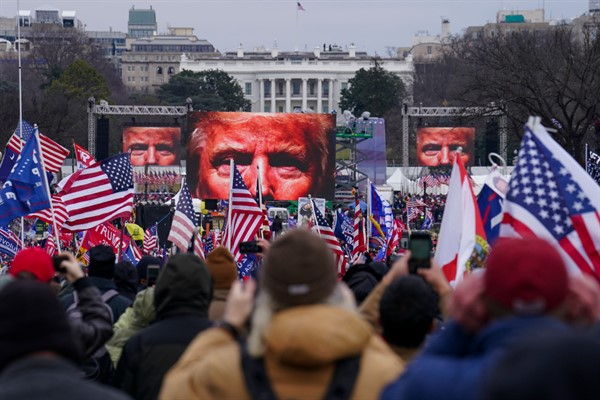The shocking visuals of last week’s mob assault on the U.S. Capitol building, incited by President Donald Trump, stunned viewers around the world. But the more insidious assault on American democracy has been led by the faction of the Republican Party that perpetuated Trump’s lies about election fraud, voted against the certification Joe Biden’s election victory in Congress and duped millions of Americans.
In my recent study of democratic erosion around the world, my co-author, Murat Somer, and I identified a common template for the gradual undermining of democratic institutions: A polarizing leader attempts to consolidate power by changing enough rules to gain an electoral advantage, and then uses their resulting legislative majority to relax term limits and assert greater control over independent watchdogs and other branches of government. Such a leader needs a quiescent party to carry out the legislative and constitutional changes. They may create a new party for themselves, as Hugo Chavez did in Venezuela. They may use a prior position of leadership to transform an existing one, as with Viktor Orban in Hungary, Recep Tayyip Erdogan in Turkey and Narendra Modi in India. Or they might use a grassroots insurgency to “capture” a traditional, mainstream party, as Boris Johnson did in the United Kingdom and Trump has done here in the United States.
Of course, Trump did not emerge from a vacuum. The pernicious effects of hyper-partisanship on American democracy were evident before Trump won the presidency in 2016. Many scholars have commented on the “asymmetric polarization” of U.S. politics over the past three decades, as the GOP far outpaced the Democrats in its willingness to use obstructionist tactics and vilifying language. This process started with Newt Gingrich’s 1994 “Republican Revolution,” when the party won control of Congress for the first time in 40 years by treating politics as combat sport and demonizing Democratic Party leaders as “communist” and “un-American.” It continued under Republican Senate Leader Mitch McConnell’s open calls to obstruct President Barack Obama’s legislative strategy from his first day in office and try to limit his mandate to one term.

